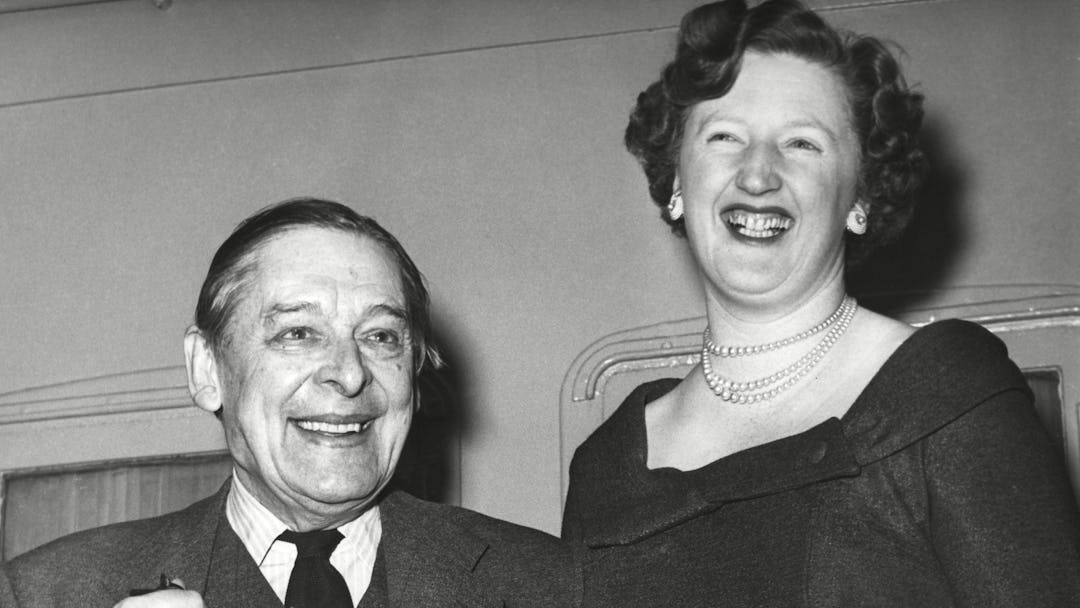Thomas Stearns Eliot began writing “The Love Song of J. Alfred Prufrock” in 1910, at the age of twenty-two. The poem was published five years later, when Ezra Pound, whom Eliot met and befriended as an expatriate in Europe, sent it to Poetry in Chicago, adding: “This is as good as anything I’ve ever seen.” This year, then, marks the 100 year anniversary of Prufrock’s imaginative journey into the half-deserted streets, the one-night cheap hotels, and the chambers of the sea. It is also, as many have noted, the 50th anniversary of Eliot’s death. I prefer to remember the younger man who wrote “Prufrock.”
Two years later, in 1917, the publication of the poem in the chapbook Prufrock and Other Observations would act as a wellspring for Modernist poetry. For decades, poets would recurve to Eliot’s exemplar of sexual neuroticism, indecision, psychogeography, and fashionably outmoded classicism, for not only is it a perfectly deranged poem, it is also perfectly balanced between the 19th and 20th centuries. (Even Pound’s “Hugh Selwyn Mauberley,” published five years later, is a xerox of “Prufrock.”) This makes “Prufrock” a poetic rubric both for looking back and peering ahead, which are essentially the same thing.
For Eliot, though, “Prufrock” was more an expression of upbuilding obsessions, the spontaneous (if repeatedly revised) outpouring of sexuality and emotion given to a man in his twenties. The poem is sexually pathetic — today we would call it “creepy,” as if Eliot was somehow unaware of this — and relies on classicism instead of psychoanalysis to unearth its weirdness. (“In the room the women come and go / Talking of Michelangelo.”) But Eliot, in those years, was a graduate student in philosophy, which partially explains the classicism. One of his professors at Harvard was the later Nobel laureate Bertrand Russell, who was as sexually raptorial as the young Eliot was gloomy and reticent. Russell demonstrated their sexual difference by sleeping with Eliot’s wife, Vivien Haigh-Wood. “T.S. Eliot’s sex life,” the writer Louis Menand once wrote, “Do we really want to go there? It is a sad and desolate place.” The sexual frustration, then, was as much a reflection as an invention.
The young Eliot, like the young Joyce and Woolf, had a flair for condensing a breadth of literary, philosophical, and historical ideas into original (and legible) writing. “Prufrock” takes its fragmentary bodies in part from the philosophy of Henri Bergson; its sense of twilight and urban meandering from Charles Dickens, James Thomson, and the French Symbolists that Eliot so loved; and, of course, its epigraph, which is still one of my favorites, from Dante. But it’s crucial to remember that Eliot, for all of his later bullshit, always held fast to an idea of poetry as emotional release and not high-minded argumentation. It’s worth noting that the rest of his life was spent soul-numbed in a sexually void marriage with his wife, who probably regretted her hasty decision to marry a man nicknamed The Undertaker. In any case, Eliot would later refer to poetry as “relief from acute discomfort” and “escape from emotion.” That’s a stark retort (and close cousin) to the Romantic ideal of poetry as “spontaneous overflow of powerful feelings.”
You don’t have to be sexually frustrated to enjoy “Prufrock,” although I certainly was as a young high schooler when I first encountered the poem. Only my life was an exact inversion of Eliot’s Brahminical privilege and Grand Touristry. Nevertheless, Eliot’s uneasy mixture of elitism and sexual anxiety mesmerized me. So did its allusive range and musicality, its dissected and etherized bodies. I never took for granted that the opening lines were entreating the reader (me) and a young woman at the same time. I guess Prufrock was my Virgil:
LET us go then, you and I, When the evening is spread out against the sky Like a patient etherized upon a table; Let us go, through certain half-deserted streets, The muttering retreats Of restless nights in one-night cheap hotels And sawdust restaurants with oyster-shells: Streets that follow like a tedious argument Of insidious intent To lead you to an overwhelming question…. Oh, do not ask, “What is it?” Let us go and make our visit.
We still broadcast on Prufrock’s frequency of selfhood today. One of the loudest and most convincing voices in contemporary poetry, for example, is Frederick Seidel’s anti-Prufrockian taunt. (It’s worth noting that Seidel’s backstory is remarkably similar to Eliot’s.) In popular culture, too — in film, television, music, whatever — sexual neurotics of every stripe owe a substantial debt to Prufrock, whether they know it or not. “Let us go and make our visit,” Prufrock says. One hundred years later: Prufrock’s world seems strange and distant, a repressed imaginary where one should tread lightly. And it’s a place we visit every day.
